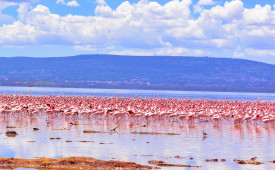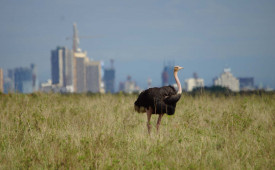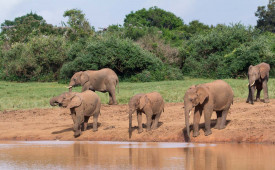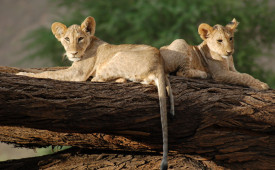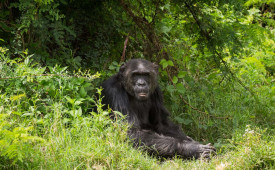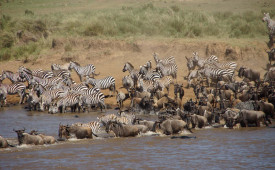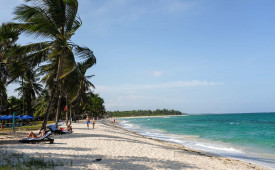-
Latin America
Latin America
- Countries (hidden space)
- Galapagos & Ecuador
- Guatemala
- Mexico
- Panama
- Peru
- Popular Attractions
- Machu Picchu
- Inca Trail
- Easter Island
- Galapagos Islands
- Patagonia
- Rio de Janeiro
- Iguazu Falls
-
Africa
Africa
- Spacer Africa
- South Africa
- Zimbabwe
- Popular Attractions
- Cape Town
- Okavango Delta
- Sossusvlei Dunes
- Victoria Falls
- The Kruger
- The Garden Route
- Masai Mara
-
Asia & Middle East
Asia & Middle East
- Asia
- Borneo (Malaysia)
- Cambodia
- India
- Japan
- Middle East
- Jordan
- Spacer Asia
- Laos
- Sri Lanka
- Uzbekistan
- Vietnam
- Popular Attractions
- Taj Mahal
- Lion Rock (Sigiriya)
- Angkor Wat
- Ha Long Bay
- Kyoto
- Petra
-
Destinations
- Latin America
- Argentina
- Bolivia
- Brazil
- Chile
- Colombia
- Costa Rica
- Galapagos & Ecuador
- Guatemala
- Mexico
- Panama
- Peru
- Asia
- Borneo (Malaysia)
- Cambodia
- India
- Japan
- Laos
- Sri Lanka
- Uzbekistan
- Vietnam
- Middle East
- Jordan
- Southern & East Africa
- Botswana
- Kenya
- Namibia
- South Africa
- Zimbabwe
- Contact Us
-
About
About
Llama Travel provides high quality holidays at the lowest possible prices.
99% recommend us Lower prices - guaranteed Financially protected by ATOL
Travelling to Kenya
Travelling in Kenya
-
Money
The currency in Kenya is the Kenyan shilling. Credit and debit cards can be used in many shops and restaurants, and can also be used to withdraw money from cash machines in cities. Whilst on safari, all lodges used by Llama Travel take card, however in more remote places you will need cash (US dollars is widely accepted in Kenya) for tipping and buying souvenirs.
It is always recommended to inform your bank that you are travelling abroad and to which countries. This will allow them to authorise money withdrawals from your account when you are away. Some banks say that this is not necessary, however we would still recommend contact with your bank as in some cases people have had difficulty in withdrawing currency.
-
Tipping
Tipping in Kenya is standard practice. Tips can be given in US dollars or in Kenyan Shillings. We recommend changing some money to spend on safari for drinks/souvenirs etc. Restaurant staff are used to receiving around US$5 per meal, and the same for housekeeping staff in hotels. Whilst on safari, it is recommended to tip driver/guides US$10-20 per person per day and porters US$1-2 per piece of luggage per movement.
-
Food
Whilst on safari, all meals are included and you certainly won’t go hungry. Meals at Kenya’s safari lodges are generally delicious and plentiful, with snacks in-between. Most dietary requirements can be catered for with advance notice. In Nairobi, there is a wide selection of eating options, from street food to fine dining restaurants. The large South Asian presence in East Africa means that there are a range of Indian restaurants in Nairobi and along the coast. Fresh fish and seafood is plentiful on the coast, and vegetarian options are usually available, although the choices will be more limited in smaller towns and rural areas. Goat is the most common meat, but you will also find mutton, chicken, beef and some game including ostrich and crocodile. Depending on the season, you can find a variety of exotic fruit in Kenya including mangoes, pineapples, passion fruit, guavas and coconuts. Tusker is a local beer and makes for a great sundowner after a day in the bush, whilst chai (sweet milky tea) is a popular choice with Kenyans. Local fare in Kenya is pretty basic and meat-based, generally consisting of a carbohydrate such as ugali (a thick maize porridge), rice, potatoes, bread or plantains and vegetables such as spinach. This is usually accompanied by meat, with the most famous Kenyan dish being nyama choma (Swahili for barbecued meat).
-
Budgeting for your stay
All hotels include breakfast, and all meals are included whilst on safari, although you will need money for extra drinks. Whilst in cities, we recommend budgeting approximately US$20-30 per person for a three-course meal, US$20-70 for a bottle of wine, depending on the brand, and US$0.5-1 for a 500ml bottle of soft drink. In lodges, a 500ml soft drink is around US$3 and a bottle of wine can vary from US$25-80. Throughout Kenya there are opportunities to shop for souvenirs and we advise setting aside some of your budget for this purpose. Credit cards are accepted in most places although Amex has more limited use.
-
What to pack - Kenya
Kenya has a tropical climate with sunny days and cooler nights, and you should be prepared for a variety of conditions. Average daily temperatures are around 22–27°C, depending on which region you visit. The dry season extends from June to October and there are two rainy seasons: the big one from April to May and the smaller one from late October to December. The wildebeest migration in the Masai Mara usually happens between June and October. During the day it is generally hot, so you should pack lightweight loose-fitting clothes in natural fabrics, such as linen or cotton. Long sleeved shirts and long trousers will protect you against mosquitoes at night. In the winter it gets chilly, so you should pack a warm jacket for morning game drives. On the coast, the climate is warm and tropical, with temperatures ranging from 20oC to 33oC throughout the year. The rainiest month is May, when the rain falls for around 19 days. The sea is warm all year round, ranging from 25°C in July and August to 29°C in March and April.
Electrical sockets in Kenya are 240 Volts. Sockets fit UK-style plugs.
We recommend you carry a copy of your passport with you at all times.
Please bring any medication you may require from the UK.

